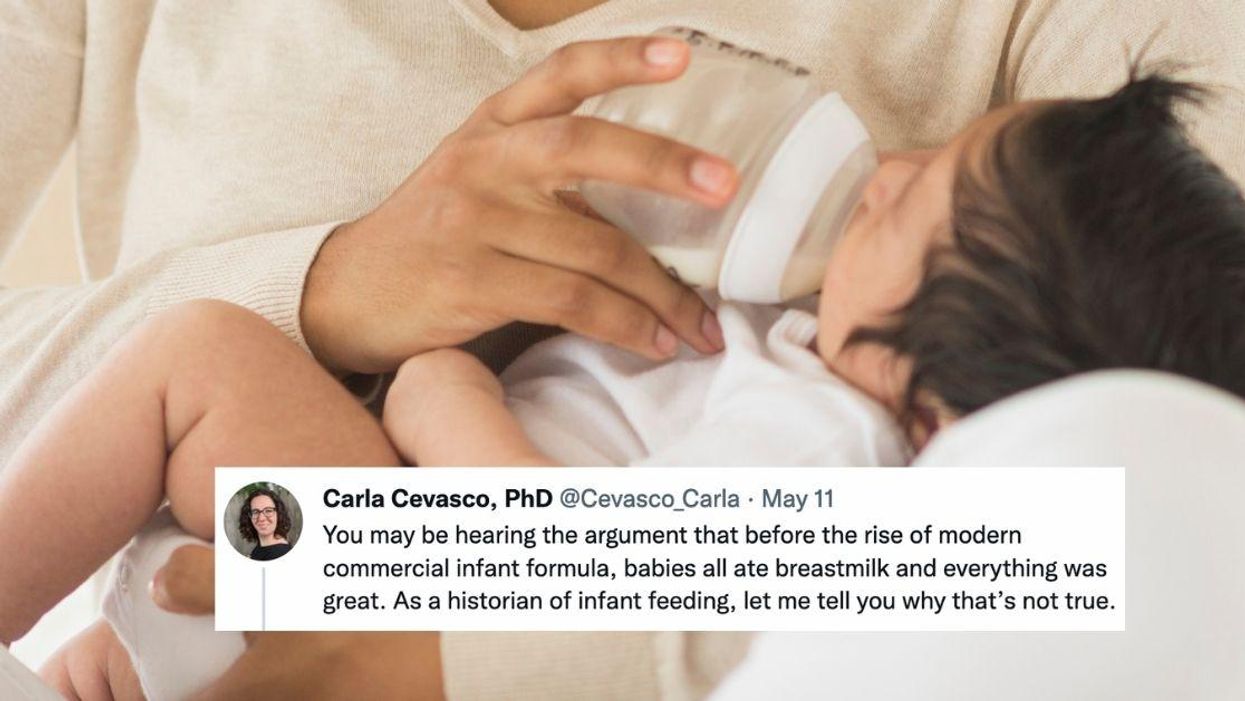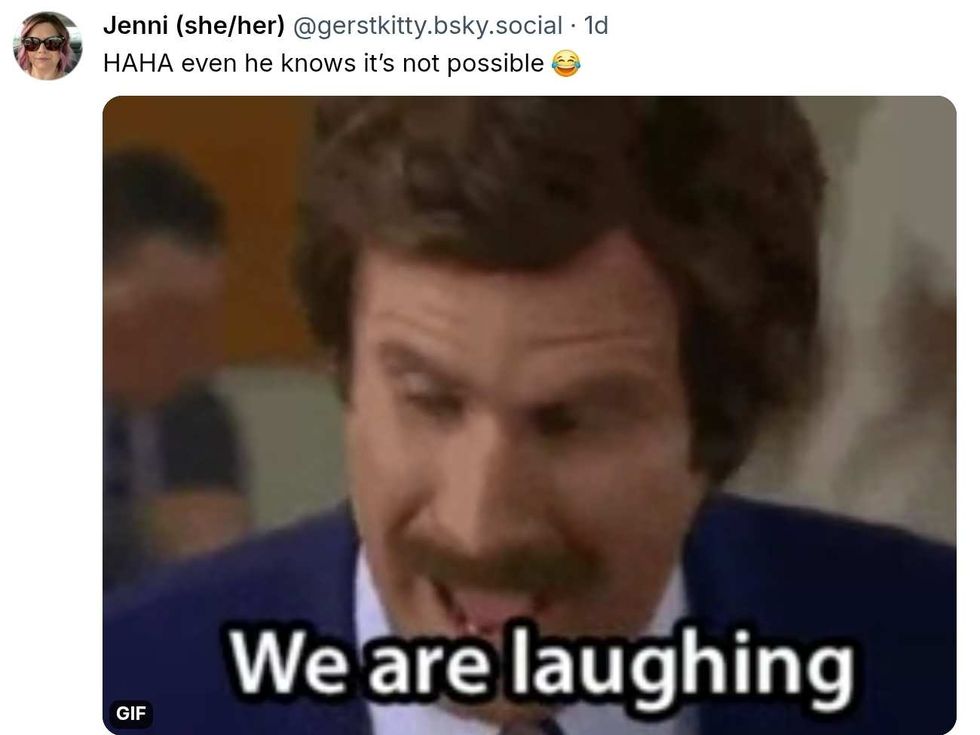A severe shortage of infant formula owing to manufacturing defects, the ongoing supply chain crisis and federal red tape has impacted nearly every part of the United States in recent weeks.
The shortage is so dire in some areas parents are resorting to everything from watered-down cow's milk to putting their babies on solid foods far earlier than recommended.
And as the crisis has deepened, misinformed people have cited the issue as evidence women should always breastfeed their babies, claiming that's how women always did things before commercial formula existed.
The problem is that isn't true, as historian Dr. Carla Cevasco pointed out on Twitter in a lengthy and eye-opening thread on the long-running history of feeding babies things other than breastmilk.
Dr. Cevasco addressed head-on the critics scolding women for relying on a supposedly unnatural food source for their babies.
She began:
"You may be hearing the argument that before the rise of modern commercial infant formula, babies all ate breastmilk and everything was great."
"As a historian of infant feeding, let me tell you why that’s not true."
Cevasco first noted the need for alternate feeding sources has existed as long as humans have because just like today, some women and some babies are incapable of breastfeeding, some women die in childbirth and some women work outside the home.
Dr. Cevasco also noted that slaves were often forbidden from breastfeeding so that they could return to fertility faster, and that many babies are also incapable of breastfeeding for various reasons.
So what did babies eat in these situations?
It turns out the answers are as myriad as the reasons for not breasfeeding. Many babies throughout history have been breastfed by women other than their mothers--like wet nurses or slaves, but not just asa sign of wealth.
Some cultures communally parented, with multiple women sharing breastfeeding. And some women are not able to produce enough breastmilk to sustain a child, which before formula required help from another family or community member.
There are also many documented cultures throughout history that fed babies all manner of things besides breastmilk, from boiled nuts and grain meal, to diluted animal milk mixed with bread crumbs.
Dr. Cevasco noted all of these babies would frequently die of malnourishment—even those being breastfed—which she pointed out was the problem formula was designed to address.
Dr. Cevasco also pointed out in the United States, far more women likely would breastfeed if we had adequate support systems for new mothers.
Others on Twitter applauded Cevasco for clarifying the faulty logic with which so many are approaching the formula crisis.
America's formula shortage is because of the intersecting problems of a contamination-related recall at one of the nation's largest manufacturing facilities, a facility shutdown, supply-chain issues, hoarding and stringent FDA and trade regulations that make European formulas and many foreign dairy products illegal in the United States.
While the Biden Administration has said it is doing everything it can to cut "red tape" and improve the baby formula supply, the factory that first sparked the shortage and hoarding is not expected to be operational again for at least two months.














 @chrissy64/Bluesky
@chrissy64/Bluesky @gerstkitty/Bluesky
@gerstkitty/Bluesky @katvanzan/Bluesky
@katvanzan/Bluesky @ghenguskahn/X
@ghenguskahn/X @theshawnstuckey.com/Bluesky
@theshawnstuckey.com/Bluesky
 @starlightwishes/Bluesky
@starlightwishes/Bluesky

